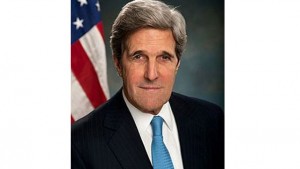 As Syria plunged back into bloodshed and the UN suspended humanitarian aid convoys Tuesday, world powers struggled to convince themselves that a ceasefire can be salvaged.
As Syria plunged back into bloodshed and the UN suspended humanitarian aid convoys Tuesday, world powers struggled to convince themselves that a ceasefire can be salvaged.
US Secretary of State John Kerry insisted that US-Russian attempts to broker a truce are “not dead” despite an air strike on an aid convoy and promised international talks will resume this week.
Syria’s beleaguered opposition sneered at this, branding the international community weak for not immediately taking action against Bashar al-Assad’s regime for breaking the truce.
Opposition leader Riad Hijab, head of the rebel High Negotiations Committee, said the ministers had shown “total weakness” and said he had proof Russian and Syrian jets were involved in the aid convoy strike.
But US President Barack Obama backed his top diplomat Kerry, saying there was “no ultimate military victory to be won” and calling on nations to pursue the “hard work” of diplomacy.
Kerry’s terse declaration that talks would continue after a brief meeting in New York of the International Syria Support Group, did not conceal a pessimistic mood among his fellow foreign ministers.
Washington’s top diplomat arrived for the ISSG meeting with his Russian opposite number and constant sparring partner Foreign Minister Sergei Lavrov, co-chair of the 23-nation group.
Relations between the nominal partners were already at a low ebb after a US-led coalition air strike on Saturday killed dozens of Syrian soldiers — in what Washington said was a mistake.
Then, on Monday, the negotiations appeared doomed after the Syrian army declared an end to the US-Russian brokered ceasefire and a UN aid convoy was hit in an air strike.
But Kerry nevertheless took the opportunity of the ISSG members being gathered in New York for the United Nations General Assembly to convene crisis talks.
The mood was grim and the brief meeting inconclusive, but it allowed Kerry and UN peace envoy Staffan de Mistura a chance to insist that the process has not collapsed.
The talks lasted less than an hour and participants said the mood was tense.
Kerry’s spokesman John Kirby said the ministers had agreed that, “despite continued violence,” they would still use the agreement between the United States and Russia as a basis for more talks.
The ISSG is thus to reconvene in New York this week.
“Quite frankly, the Kerry-Lavrov process is the only show in town and we’ve got to get that show back on the road,” Britain’s Foreign Secretary Boris Johnson admitted.
France was more openly sceptical, President Francois Hollande telling opposition figures that the truce hadn’t lasted as long as the time it had taken to declare it.
His foreign minister, Jean-Marc Ayrault, warned that trust was breaking down in the US-Russian partnership and said other countries should help push the process forward.
“It was a fairly dramatic meeting, the mood was gloomy. Is there hope? I can’t answer that yet, but we should do everything we can,” Ayrault told reporters.
“The Russians and the Americans can’t do it alone.”
Officials said participants had agreed to reconvene — probably on Friday — but analysts warned that more failures would not come without political costs.
